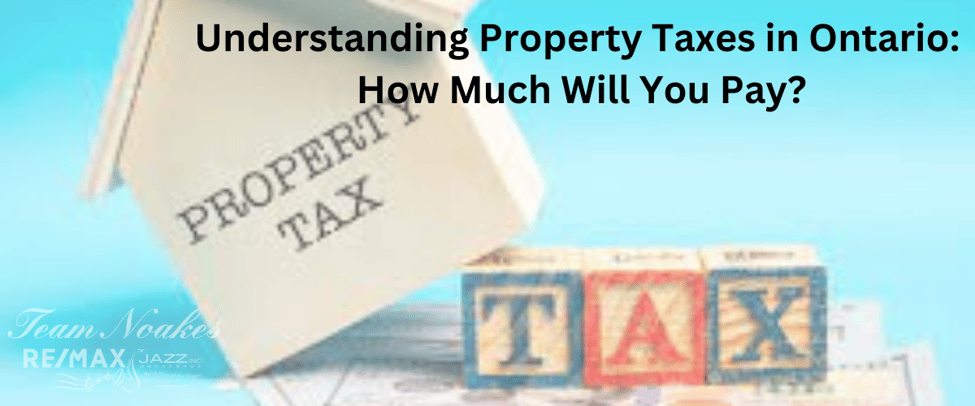Property taxes are an essential aspect of homeownership in Ontario. They play a significant role in funding local municipal services such as schools, infrastructure maintenance, and emergency services. Understanding how property taxes are calculated and how much you can expect to pay is crucial for homeowners and potential buyers alike. In this blog, we will delve into the intricacies of property taxes in Ontario, providing you with a comprehensive understanding of the factors influencing the tax amount.
What Are Property Taxes?
Property taxes are levies imposed by municipalities on property owners to generate revenue for local services and amenities. The tax amount is determined based on the assessed value of the property and the tax rate set by the municipality.
Assessment Process:
Ontario uses the Assessment Act to determine the assessed value of a property. The Municipal Property Assessment Corporation (MPAC) is responsible for assessing properties across the province. They evaluate factors such as property size, location, age, building characteristics, and recent sales data to determine its value.
Understanding the Tax Rate:
The tax rate, also known as the mill rate, is set by each municipality. It represents the amount of tax payable per $1,000 of the assessed property value. The tax rate may vary between different municipalities based on their budgetary needs and local services.
Calculating Property Taxes:
To calculate property taxes in Ontario, multiply the assessed value of your property by the tax rate. For example, if your property is assessed at $500,000 and the tax rate is 1%, your annual property tax would be $5,000 ($500,000 x 0.01).
Property Tax Exemptions and Rebates:
Certain property types may be eligible for exemptions or rebates. For instance, the Ontario government offers rebates for properties with renewable energy systems, conservation land, and certain types of agricultural properties. Additionally, seniors and people with disabilities may be eligible for tax relief programs.
Understanding Property Tax Increases:
Property tax amounts can fluctuate from year to year due to changes in the tax rate and reassessment of properties. Municipalities may increase tax rates to meet budgetary requirements, leading to higher tax bills for homeowners. It's essential to stay informed about potential tax increases and how they may impact your budget.
Municipal Services Supported by Property Taxes:
Property taxes fund a range of essential municipal services, including education, road maintenance, garbage collection, fire and police services, public transit, parks, and recreational facilities. Understanding how your tax dollars contribute to these services can give you a clearer perspective on the value they provide.
Appealing Property Assessments:
If you believe your property assessment is inaccurate, you have the right to appeal it through MPAC's assessment review process. The appeal process allows you to present evidence supporting a reassessment of your property's value, which may result in a change in your property tax amount.
Property taxes are a necessary financial responsibility for homeowners. By understanding the factors influencing property tax amounts, such as assessed value, tax rates, and exemptions, you can better estimate how much you will pay. Stay informed about changes in tax rates and assess your property's assessment accuracy to ensure you are paying a fair and reasonable amount in property taxes. Remember to consult with a qualified real estate professional or tax advisor for personalized guidance regarding property taxes in your specific situation.
Disclaimer: This blog is for informational purposes only and should not be considered as legal or financial advice. Consult with a qualified professional for personalized guidance.
- Submenu for Blog Details
- Home
- Blog
- Sellers
- Buyers
- Fridays Feature!
- Map Search
- About
- Contact
- Communities
- Under $500,000

